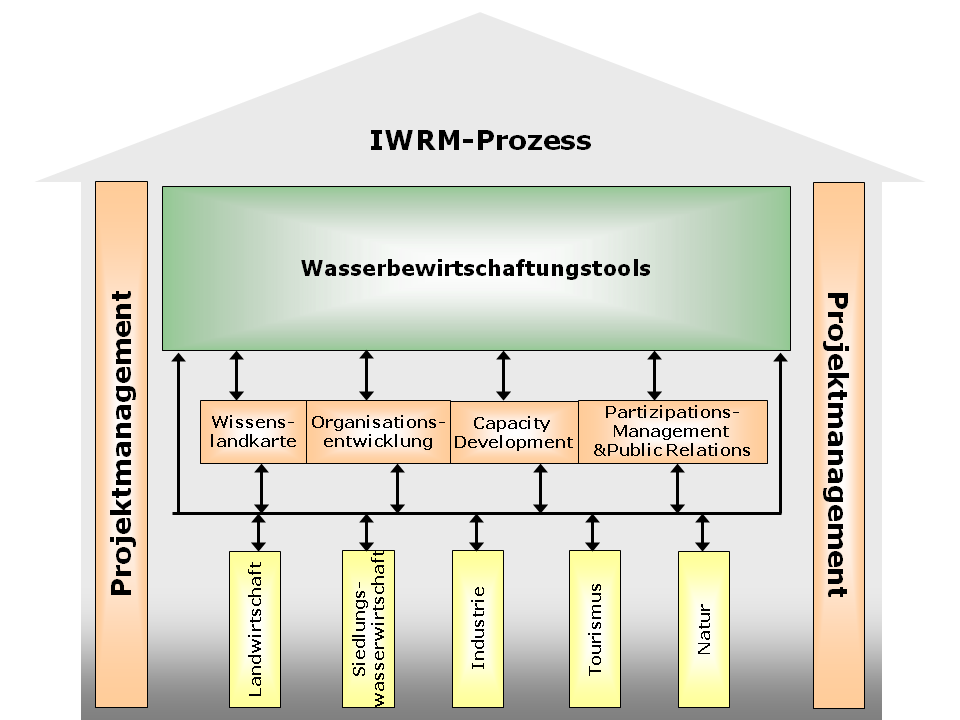The core of the project was the development of the water management tool (WMT), a data-based tool for the quantitative simulation of the water resources in the catchment and assessment of water management decisions. WMT will be further developed to become a decision support system (DSS).
Decisions which are both reasonable with regards to water management as well as politically and socially accepted need a solid scientific basis. At the beginning of the project, however, there were no coherent data available for the Zayandeh Rud catchment (e.g. on water consumption of the single sectors) which were clear and acceptable for the different stakeholders. Thus, justification for certain decisions always remained controvertible.
Therefore, a project structure was developed (see figure below) that involved all water using sectors and relevant stakeholders in the development of the water management tools via equivalent sector modules (yellow). In five integration modules (orange) scientific results gained in the sector modules were summarized, visualized and brought into the stakeholder discussion.
Through a focused embedment of tested technologies and management methods into the specific regional conditions, sustainable management of the Zayandeh Rud shall be accomplished. One of the technical focal points was the equipping of overloaded sewage treatment plants in Isfahan with modern membrane technology so that the treated wastewater met the hygienic requirements for re-use in agriculture. Using locally adjusted participative methods, the foundation of organizational units was initiated which are necessary for the future operation of the WMT, e.g. to collect data and harmonize them, or for using the DSS and to develop appropriate water management measures.
